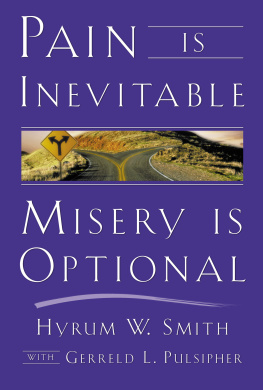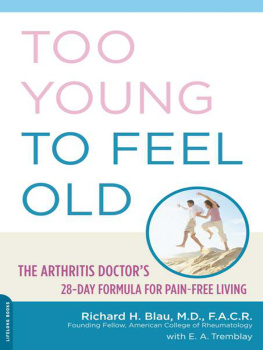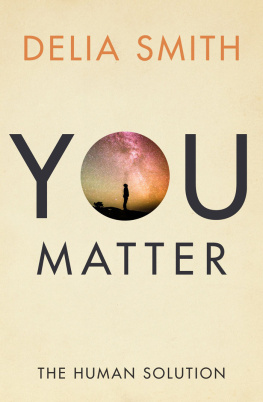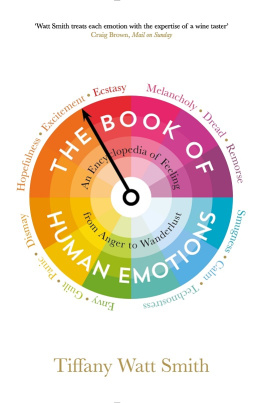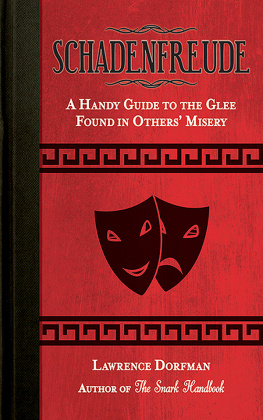THE JOY OF PAIN

THE JOY
of
PAIN
SCHADENFREUDE AND THE DARK SIDE
OF HUMAN NATURE
Richard H. Smith


Oxford University Press is a department of the University of Oxford.
It furthers the Universitys objective of excellence in research, scholarship,
and education by publishing worldwide.
Oxford New York
Auckland Cape Town Dar es Salaam Hong Kong Karachi
Kuala Lumpur Madrid Melbourne Mexico City Nairobi
New Delhi Shanghai Taipei Toronto
With offices in
Argentina Austria Brazil Chile Czech Republic France Greece
Guatemala Hungary Italy Japan Poland Portugal Singapore
South Korea Switzerland Thailand Turkey Ukraine Vietnam
Oxford is a registered trademark of Oxford University Press in the UK
and certain other countries.
Published in the United States of America by
Oxford University Press
198 Madison Avenue, New York, NY 10016
Oxford University Press 2013
All rights reserved. No part of this publication may be reproduced, stored in a
retrieval system, or transmitted, in any form or by any means, without the prior
permission in writing of Oxford University Press, or as expressly permitted by law,
by license, or under terms agreed with the appropriate reproduction rights organization.
Inquiries concerning reproduction outside the scope of the above should be sent to the
Rights Department, Oxford University Press, at the address above.
You must not circulate this work in any other form
and you must impose this same condition on any acquirer.
Library of Congress Cataloging-in-Publication Data
Smith, Richard H.
The joy of pain : schadenfreude and the dark side of human nature / Richard H. Smith.
pages cm
ISBN 9780199734542
1. Envy. 2. Failure (Psychology) 3. Humiliation. I. Title.
BF575.E65S65 2013
152.4dc23 2012044930
1 3 5 7 9 8 6 4 2
Printed in the United States of America
on acid-free paper
CONTENTS
CHAPTER 1
THE HIGHS OF SUPERIORITY
CHAPTER 2
LOOKING UP BY LOOKING DOWN
CHAPTER 3
OTHERS MUST FAIL
CHAPTER 4
SELF AND OTHER
CHAPTER 5
DESERVED MISFORTUNES ARE SWEET
CHAPTER 6
JUSTICE GETS PERSONAL
CHAPTER 7
HUMILITAINMENT
CHAPTER 8
THERES SOMETHING ABOUT ENVY
CHAPTER 9
ENVY TRANSMUTED
CHAPTER 10
DARK PLEASURES UNLEASHED
CHAPTER 11
HOW WOULD LINCOLN FEEL?
L ori Handelman was my first editor at Oxford University Press. Do you know someone whose judgment is so keen that you hang on her every word? You know that whatever your own understanding might be, it is necessarily incomplete until you have consulted her. Lori is in this category. Lori gave the first draft of the book an initial thumbs up, and she began the tough task of helping me turn a sows ear into something of better quality. Chance favored me a second time when Abby Gross took over the project. Upon these two rocks of Handelman and Gross, I could start a publishing company. I was very far from solving the problems with the first draft, but Abby rolled up her editorial sleeves and went to work on guiding it toward the copy editing stage. Like Lori, her wisdom is extraordinary. As with Lori, I was incapable of a confident judgment on any issue until I got her opinion. If this final product misses the mark in any way, it is because I was unable to act on Abbys suggestions. I should add that the whole operation at Oxford was superb. The group of folks, together with Abby, who thought through the cover of the book did an exceptional job. I had imagined any number of designs for the cover, but none was close to what the Oxford team created. It was perfect, really. Suzanne Walker, Karen Kwak, Coleen Hatrick, and Pam Hanley expertly guided the final draft through to its completion as book in hand.
This book is partly a story of empirical work, done by myself and a group of other psychologists, including Norman Feather, Shlomo Hareli, Wilco van Dijk, Jaap Ouwerkerk, Masato Sawada, Hidehiko Takahashi, Zlatan Krizan, Omesh Johar, Colin Leach, Russell Spears, Niels van de Ven, Seger Breugelmans, Jill Sundie, Terry Turner, Mina Cikara, and Susan Fiskeas well as some of my current and former students, Ron Garonzik, David Combs, Caitlin Powell, Ryan Schurtz, Charles Hoogland, Mark Jackson, Matt Webster, Nancy Brigham, and Chelsea Cooper. Much of this work I summarize in this book, and I am indebted to these scholars for all their efforts to make conceptual and empirical headway in understanding schadenfreude.
Many friends and colleagues have contributed directly to my thinking or have simply given me the support of their friendship, which indirectly made this book possible. John Thibaut and Chet Insko at the University of North Carolina, where I did my graduate work, and Ed Diener at the University of Illinois, where I enjoyed a postdoc, were my first academic mentors. They each made me a much better researcher and thinker. The first study on schadenfreude that I was part of was done at Boston University, my first academic home. Much thanks to Ed Krupat, Len Saxe, Fabio Idrobo, Jean Berko Gleason, Henry Marcucella, Hilda Perlitsh, Mary Perry, and Joanne Hebden for their constant goodwill during the four years I was in the departmentand to the late Phil Kubzansky, a marvelous human being of many parts who gave me so much good advice, including these words from A. E. Housman: Get you the sons your fathers got, and God will save the Queen. What a mensch he was.
I am lucky currently to work at a place, the Psychology Department at the University of Kentucky, that provides a friendly, respectful, and intellectually vibrant environment conducive to getting good work done. A special thanks to Bob Lorch, Betty Lorch, Jonathan Golding, Ron Taylor, Art Beaman, Phil Berger, Monica Kern, Larry Gottlob, Charley Carlson, Ruth Baer, Rich Milich, Tom Zentall, Mike Bardo, Phil Kraemer, Mary Sue Johnson, Jenny Casey, Erin Norton, Melanie Kelley, Jeremy Popkin, Richard Greissman, Steve Voss, and Mark Peffley.
A number of people read and gave me feedback on one or more chapters. Mark Alicke, Phil Berger, Zlatan Krizan, Rich Milich, Jeremy Popkin, and gave me useful sociological references. Heidi Breiger provided me with a judges perspective on assessing emotional reactions to criminal behavior. Jerry Parrott clarified much of my thinking about envy. Late in the process, Charley Carlson read the penultimate draft of the entire book. This was an enormous help in fine-tuning points. Before submitting the last draft of the book, Jon Martin, Sarah Braun, Alex Bianchi, and Allie Martin, the undergraduates in my lab at the time, read parts or all of the book. They also made very helpful suggestions and caught many writing glitches. A former honors student, Edward Brown, read the entire book and gave me especially useful comments.
My sisters, Gillian Murrell and Helen Smith, read the first draft of the book. Their comments were extremely helpful in my being able to take a sober assessment of where things werewhat was working and what was not. I very much appreciated their enthusiasm for what I was trying to accomplish. My brother-in-law, Arch Johnson, who has a lot of horse sense, was always ready as a sounding board. And my sensible and fair-minded niece, Julia Smith, read early versions of . Her comments greatly assisted my efforts to clarify these sections.
Next page

